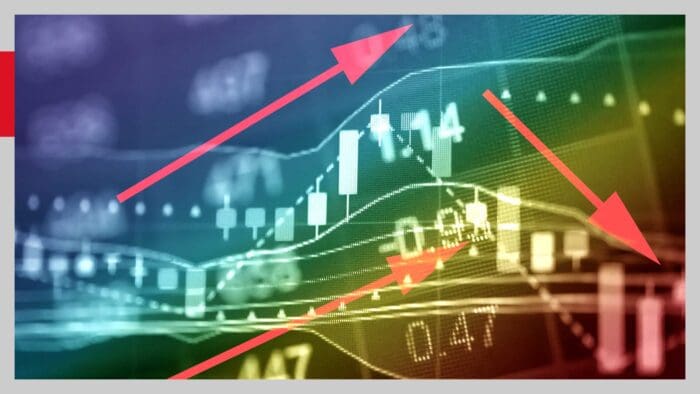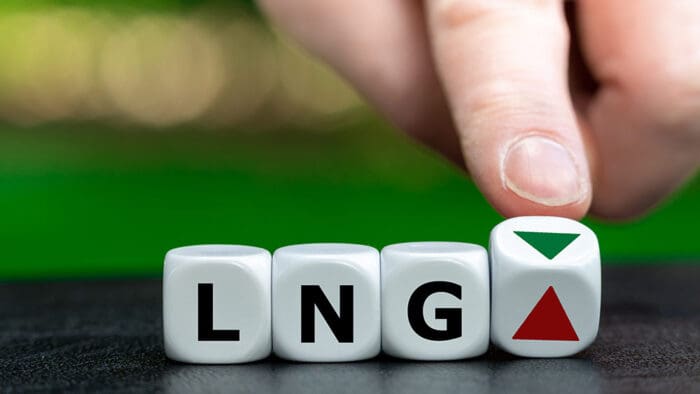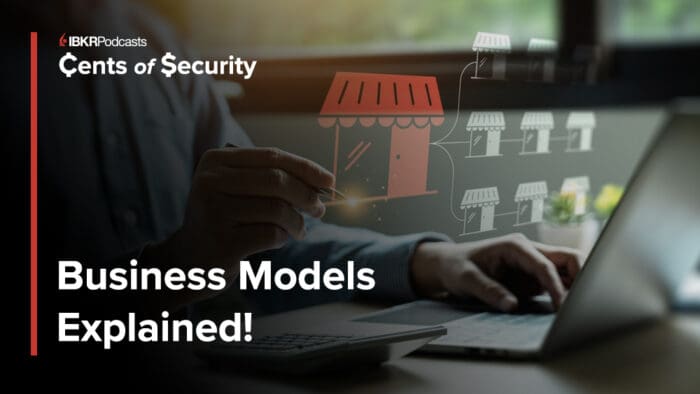In this look back over his career, Dr. Russell Rhoads, PhD, examines the causes and consequences of episodic volatility over five decades of market chaos as a trader and options educator in Chicago.
Summary – IBKR Podcasts Ep. 153
The following is a summary of a live audio recording and may contain errors in spelling or grammar. Although IBKR has edited for clarity no material changes have been made.
Andrew Wilkinson
Welcome to this IBKR podcast, which I’m hoping will be an explosive event. I’m joined by Dr. Russell Rhodes, PhD from ListDer Research. Welcome Russell. How are you?
Russell Rhoads
I am absolutely thrilled to be here, Andrew. Look, I’m enjoying having a two-way conversation instead of doing a webcast like I normally do at Interactive Brokers. This will be a lot of fun.
Andrew Wilkinson
Well, I’ve chosen Russell as our guest today because we’re going to be talking about volatility during our careers. Russell, tell the listeners, please, your experience as an Options trader.
Russell Rhoads
Oh, sure. I’m in my mid 50s now and I think a lot of people at my age have kind of had different types of career tracks and they tend to change overtime. Originally when I got out of undergrad, I was on the floor in the Eurodollar Options pit for some time. So that was my beginning experience with Options. I don’t think they’re trading Eurodollar Options anymore so, it’s not so far in the rearview mirror that we have to explain what they are.
I found I did not really like the physical part. I really didn’t like standing in the pit and waiting around for orders to come in all day. I felt like I was wasting so much time. And I benefited because electronic trading became a thing. In fact, when I was on the floor, probably just two or three months into being on the floor at CME Group, they introduced Globex and I really enjoyed upstairs electronic trading versus trading on the floor, which you can’t even do now.
I moved into the hedge fund world, worked at a handful of firms for about 15 years or so. And then around 2008, when I was in my early 40s, made a change to working in the Education Division at the Chicago Board Options Exchange where I became acquainted with Interactive Brokers. Although I’ve been a client since ‘99. I always like to include that.
So around 2008 when I joined the Options Institute at CBOE, worked my way up through there, ended up being the head instructor when I decided to leave there and go out and do more academic work and do more consulting than working for the exchange. While I was at CBOE, when I joined the Options Institute, and I think this is one of the things that I was associated with, is none of the other instructors were really paying a whole lot of attention to VIX.
And VIX wasn’t doing a whole lot. But once we came out of the financial crisis and people saw what tail protection using Vicks calls, how that might have helped you out, we did start to get a whole lot more attention, and since nobody else was paying attention, I paid attention to it.
I wrote a couple of books on VIX, wrote a couple of books on Options trading as well, and now I’m in the third act, I guess. In addition to doing some consulting under the name ListDer Research, which is supposed to stand for listed derivative research. I feel like the big investment banks don’t spend as much time on listed derivatives because over the counter derivatives are more profitable for them. So I figure there might be a niche to do some work there. But I’m also an Associate clinical Professor at the Kelly School at Indiana. So I spend about half my time consulting and I guess I’m supposed to be full time teaching as well.
Andrew Wilkinson
You’ve seen volatility. You’ve had a lifetime of volatility. Can you describe for the audience some of the major periods of turmoil during the last 50 years? What’s the cause? What’s the root cause behind them? And, for example, how long do they last? Just take it chronologically if you will.
Russell Rhoads
Start with ‘87, although I was in college in 87. I was at Memphis State, which is now University of Memphis and working at a bar and grill that was owned by a group of stockbrokers. I recall, I mean, I was working lunch, but I recall that we were worried they were going to close the restaurant because we didn’t really know any better. But the interesting thing about the crash of ‘87 and reading reports on it and sort of experiencing it through, I guess, Maria Bartiromo or whoever, you saw how we had this stair step down throughout the trading day.
And then, lo and behold, it was one of the suspects, and there were a lot of things going on. But what accentuated it was something new. And they always say if you hear somebody on Wall Street say it’s different this time, that you should shut them down immediately. But there seems to be a different reason for the high periods when we have these excessive periods of volatility.
In the crash of ‘87, the VIX equivalent at the time went all the way up to 150. So I’d like to remind people that 80 is not the cap. 80-90 is not the cap. The number that we have seen the last couple of times, we’ve seen a spike in volatility. But in that case the cause was the Options market. And there are a lot of folks that would sell out of the money S&P 100 or OEX Options so far out of the money that based on history, as long as you didn’t include 1929, they probably wouldn’t get touched.
And there were programs that would sell them as the market went down, then you’d have hedging activity and that waterfall activity really did cause the market crash. And the interesting thing around that one is I think it was more of a market structure issue. A lot of people give Alan Greenspan a lot of credit for taking over and making sure that it didn’t bleed over to the overall economy. I don’t think it was triggered by the overall economy. So there wasn’t going to be a bleed over to the rest of the economy with one in ‘87.
The next one that came along, I would think we had a few minor ones. We had the Long-Term Capital Management situation, but that one was based on a firm doing something kind of new. They were doing what they felt was arbitrage between a couple of markets. They were leveraging themselves up an awful lot and what ended up happening was they were long, low-quality instruments and short, high-quality instruments. I think Russia defaulted on debt or something like that and all of a sudden everybody was worried about low quality investments, so they kept going down. And the high-quality ones were probably a flight to quality, which held up, but again, something new going on there and that’s what caused that.
And yeah, you can fast forward to 1999-2000, that’s the Internet Bubble. We invented new ways to value stocks, like how often does somebody click on a website?
Andrew Wilkinson
Right!
Russell Rhoads
So maybe the similarity here is there’s something new each time. That one definitely bled through to the economy for a while. The housing crisis. What was new behind that one? Not everybody should try to own a home. You know what I mean? And then you have people that, and I was like this for a good part of my life, probably more suited toward renting as opposed to purchasing.
But you have bad actors. Your best interest is not what they care about. What they care about is selling you a loan, and then the loan gets pawned off to somebody else, and they don’t have any skin in the game whatsoever. That really is the core of what happened in 2008. New ways of borrowing money for homes I think led to what happened in 2008.
And then, you know, the most recent one, we hadn’t seen a pandemic in a long time. The market didn’t really react to the pandemic back in, I think 1917-1918, which they called the Spanish Flu, which had nothing to do with Spain.
I guess it’s new because we hadn’t dealt with a pandemic in some time. But the thing that’s common among all of them is they don’t last particularly long. And they all seem to have something relatively new that pops up.
In the current environment, a lot of people keep trying to figure out what the new thing that’s going to be that might cause the next, as I refer to them as volatility events, which is basically a quick sell off of 20% or so in the S&P 500 and VIX up in the 40,50,60 range.
Everybody keeps trying to point a finger at what’s going to be new. And you hear a lot of criticism of the short-dated index Options or 0DTE Options. Is that going to be it? I don’t think that one’s a big enough part of the market to cause a lot of issues. And we have had some market weakness in the last year and a half or so since daily Options have been available. So I don’t think it’s going to be that one.
Of course, everybody points fingers at Bitcoin, but Bitcoin when you look at the total value of the Bitcoin outstanding, it’s nothing more than a really large company, as far as market cap goes. And I say really big. It’s a mega cap company. At one time I think it would have been like the 80th biggest company in the S&P 500. Needless to say, it’s gotten a lot bigger. So I don’t think that’s one that we need to be overly concerned about yet.
But the thing that they all do have in common is that there’s some sort of new method of trading, some sort of new method of gaining exposure or taking on risk etcetera that may create a bubble or just may create some sort of serious market issue like the long-term capital issue.
Andrew Wilkinson
The one thing I would always say that they tend to have in common is that people can’t believe how quickly or how far prices are dropping, and then they become self-fulfilling, right?
Russell Rhoads
Oh, yeah, yeah. And there’s a gentleman named Bill Luby who I think does some great work in the volatility space. And back, gosh, I want to say 2016-2017 and I may have the years wrong here but we did have a period of time where VIX was you know 11,12,11,12 just for several months. And even when we could get a small sell off in the equity market, VIX might go up to 13, 14 and then come right back down. And Bill had some great insight, he said, what it’s going to take is that it’s going to take that second step down. When the buyers that have been conditioned to buy 3,4,5% sell offs when you know they buy and all of a sudden they’re down another 5%.
I think we got that in 2018 with the Volmageddon situation where it took us a little while to recover from that one. And I know I skipped over that one because that one was kind of brief, but that was also one that you could attribute a new way of trading which was the VIX exchange traded products. They all do have that commonality. It’s so easy to pick them out after the fact.
Andrew Wilkinson
They don’t happen frequently, but they certainly happen. They’re inevitable, right?
What’s the hardest thing that you’ve found about teaching investors about that inevitability? The fact that volatility is omnipresent in the background.
Russell Rhoads
My role at CBOE in the Education Department, I felt, was too… and I still feel like as a market professional that the market has been very good, too, that I owe the market something.
And the thing that I like to do is just make sure people understand what can happen. My job at CBOE is to make sure people understand how VIX trades and inevitably have people trade VIX more. But I don’t want somebody to just consistently short fix Futures and then get absolutely blown up. I want them to trade smart.
And trading smart means understanding what can happen. And I already mentioned that I think everybody looks at the upper 80s as a cap on VIX. We have seen a VIX-like Index well over 100% before, so if VIX is up around 60 or 70 and you’re like well, I’m going to sell the 90 calls because we’ve never been above there, we can go above there. And just make sure that you understand worst case scenario because it just takes one big outlier to completely wipe you out.
Andrew Wilkinson
You’ve described perfectly a lot of those peaks in volatility. They’re all of differing degrees. How do those different peaks and volatility compare? Is trying to run a comparison accurate?
Russell Rhoads
The thing in the non-quantitative part of volatility, And Steve Sears over at Barron’s, he gets to be called the VIX uncle because he came up with the term Fear Index. What I would really like to do is, I’ve got teenagers and you hear the term “frenemies” every once in a while, I would love to combine the phrase surprise and fear. I love it when people that do what I do get on and talk about how right they were.
Andrew Wilkinson
We could call this the “Sears Index”!
Russell Rhoads
Yeah! The Sears.
And I’m not talking about Steve when I say people that like to talk about how right they were!
But back in 2022, I was on a panel with some really smart folks. One of one of them, I had a little bit of a fanboy situation going on. Toward the end of the panel.. it’s 2022, the market wasn’t acting particularly well, and VIX was in the 20s or so.
And all three of the other panelists said VIX has to get above 40 for this bear market to be over with. And it didn’t happen. And I just chimed in and I said I don’t think that’s necessarily true this time around. That’s because everybody was already very concerned and a lot of people were hedged going into 2022.
So you need a surprise component to really get volatility to be a headline grabbing thing in a chapter in my next book. And I felt like 2022 was a year that everybody came in very cautious and somewhat prepared for the stock market to sell off. A lot of market participants have already bought insurance. Much like if you’re involved in a stock that continues to run up and it’s one of those “fear of missing out” situations. When you’re buying a stock like that, your real intent is to turn around and sell it to somebody else.
And if you’ve got a lot of folks that have already put on decent hedges or have enough cash on hand that they’re OK if the market sells off 10 or 20%, where is that panic buying Out Of The Money or Out Of The Money index Options that’s going to push implied volatility higher?
If there’s no surprise component to the move then you don’t get the VIX move that you would expect. Now trying to teach investors about the inevitable appearance of volatility, you end up with a sort of exhaustion. You have a Chicken Little situation!
If if I were still at CBOE and every week I’m writing on the CBOE blog, here’s how you need to be prepared for the next volatility spike and we go three years without one, nobody’s going to be reading me anymore. And people are sure as heck not going to be putting those positions on anymore.
A prime example of this, and I’m not picking on them, but before one of the more recent volatility events, CalPERS got rid of all of their tail hedges.
And I think part of it was the managers got tired of going to the board and justifying giving up a half a percent a year in case we get the big move. And I feel like 2022 and I do get some years mixed up these days. So don’t hold me to that one. But I feel like they got out of their tail hedges just before a year where it would have helped them out tremendously.
So it’s not just individuals. It’s the most sophisticated managers that if you keep ybuying something and it’s not working for you, eventually you just stop buying it. And when you see a lot of people that aren’t hedged and we have an event where you wish you were hedged, that’s when we get those volatility spikes.
Andrew Wilkinson
It’s the unknown unknowns, isn’t it?
Russell Rhoads
It is. It is.
Andrew Wilkinson
My next question is, are we always better equipped for volatile times? And I guess part of what you’ve just explained there with that giving up the tail risk insurance kind of tells me that some people feel like maybe some of those unknown unknowns are not going to be out there.
Russell Rhoads
I think we’re better equipped in general, even though mistakes are being made. And I think we’re better equipped because people are getting a better understanding of behavioral finance. It’s worked its way into the popular culture where you have different types of books out there that talk about how we don’t make the most optimal economic decisions all the time.
And a lot of those are panic decisions and selling at the very worst moment. So I like to believe that people that are interested in the markets and educating themselves on the markets have started to get a better handle as far as the emotional side of things and not making the sort of mistakes that were more frequent in the past.
So that question can be taken, do we have better ways to hedge? And that’s really not how I think about it. I think more about it that individuals have a better handle, especially if you’ve lived through a few of these things, you have a better handle on when not to sell and when we’re down 20%, that really is not the time to sell.
Andrew Wilkinson
In your opinion, what do you think we’ve learned about market chaos over the years?
Russell Rhoads
Goodness gracious. I think the statement that I just made with respect to that, where we’ve learned not to overly panic or at least we’re seasoned investors that have been around for a while. As I mentioned, I teach it at Indiana and I inevitably have a handful of… I only teach in the Graduate School, but I’m in charge of the finance club for undergrads.
So inevitably when we get big moves one way or another, I have people stop by my office and ask me how I would be handling these things. And I think they’re kind of amazed that I’m just, I don’t know the better word to use this kind of chill when things are going crazy.
And that’s just because I’ve already seen it so many times and trying to pass that knowledge along to younger investors is one of the things that I’m doing as a college professor now. Just letting you know that market chaos is one of those things that happens. It’s one of those things that goes along with trying to manage your own investments or being an active trader. And often the way that you’re prepared for them is maybe just by having a constant hedge on so that you’re not worried about consistently buying stocks. In fact, there was a manager of one of the bigger university funds a few years ago on a panel that I was in the audience for. And the question to each of the panelists was are you worried about buying stocks right now? And I can’t remember what year it was, but his response was I consistently have a hedge on against anything beyond a 5% drawdown so when I have new money, I’m comfortable putting it to work because I’m operating with a safety net.
Understanding that there’s going to be market chaos and being prepared for it in a way that you’re not worried about buying today because often the next volatility event takes a lot longer to show up than people are calling for and you’re probably going to miss out on a lot of upside if you’re sitting around waiting for the next volatility event.
Andrew Wilkinson
Would you say you’re teaching investors to be good volatility managers?
Russell Rhoads
I’m trying to teach investors to be more long-term, not necessarily to manage volatility. But to be in a situation where if we do get a big sell off, maybe there’s a way that you can go ahead and take advantage of it or either you’re prepared to take advantage of it by maybe having a little bit of cash on hand, maybe having some sort of, even an inverse ETF. Something like that that profits as an inverse relationship with your overall portfolio.
But things like that so that you don’t panic when we have a big sell off. If you’re nothing but long and you don’t have any cash on hand, that’s a pretty painful experience if you don’t have a hedge or any cash on hand. So just trying to strike a balance between managing the short-term but realizing that you really should be in this for the long-term.
Andrew Wilkinson
My next question, should we just close our eyes and buy? I mean if you look on a big long term picture, it’s kind of a 45° line. Stocks just go up over time.
Russell Rhoads
So we do go up. We do go up over time with a few drawbacks. I think my answer to this one is and boy, do I hate when people answer things this way, but it really does depend and there there’s a balance in there.
One of the ways that you should go about saving for retirement is having money taken out of your check. Do the best that you can with that because that’s money, when you say close your eyes and buy, that’s money that’s automatically being swept into an account that you’re not writing a check for, that you’re not seeing a transfer for that is just working its way into a retirement account.
And then striking a balance where maybe some of it goes into the market, some of it goes into cash and then you have the ability to take advantage of market sell offs with the part that goes into cash. And that’s how I’ve managed things over time. Now I’m probably 10 to 15 years from retirement now, so more of it’s going into the market and less of it’s going into cash.
But still, I like to have the ability to take advantage of the sell offs. They happen periodically. They’re going to continue to happen periodically. If you close your eyes and put all your money right into the stock market every time you get paid, there are going to be instances where you wish you could take advantage of a situation and you’re not going to be able to.
Andrew Wilkinson
We keep returning to stress over time. They don’t happen that often really, but they happen. How would you say the Options market has developed as a result of having to address stress?
Russell Rhoads
I think the Options market has developed because individuals see the use in using Options. I worked with an exchange in the APAC region a few years ago and they were trying to figure out how to educate individuals on Options.
And they really wanted to talk about Options as a lottery ticket, which just makes me cringe. Options are risk management tools. And understanding that you have the ability to manage your risk with a lot of the same tools that professionals have.. there is an education process behind that.
But I think the Options market has developed as a result of the market periodically having stress, because you see how those instruments can work for you. Problem is the stress events or the volatility events are spread out. So if you haven’t been using Options and you see that they’re useful, you kick in and you start using them right after a volatility event. And, again, you have some sort of exhaustion where you’ve continued to buy insurance against your portfolio or buy insurance against the individual stocks that you own. And it’s not paid off. And I feel like just when people reach that exhaustion point, that’s when we have the next volatility event.
Andrew Wilkinson
As you look back over time, take a little walk down memory lane. What’s your favorite market volatility event?
Russell Rhoads
I started at CBOE and for the first year, year and a half, they really did not have me speak very much. I was creating the materials for the other instructors. And then they started to put me in front of people and probably the 4th or 5th time that they sent me out, I think I was in Atlanta. And I was speaking to a group of investors. And as I’m talking about using VIX, blah, blah, you know, just going through the typical things that you do in the hotel ballroom, about half the audience got up and walked out.
And this was pretty painful. And old Dan Gramza, who is the nicest freaking guy in our industry. I think you’ve done some things with him before. Dan is in the back of the room and he’s got this look on his face like, man, I just, I got to give this guy a hug when everything is over with. Well, that was the Flash Crash. The Flash Crash occurred while I was on stage. And an older guy.. I go alright, well, I guess appreciate the rest of you, uh, sticking with me there and this older guy gets up and he goes you didn’t suck, son. The market crashed!
And Dan came over and, you know, gave me a little hug and said, Russell, I can tell that you care about what you’re talking about. You did a great job up there. You did a great job holding it together. But yeah, I was on stage during the Flash Crash!
And I still had my microphone on when I pulled up my, actually, I think I pulled up my IB account. And then I was like holy, you know, and the whole place heard it and laughed.
So that is my favorite memory regarding market volatility. The worst one is I was running a CTA. And I put up a really good 2005 good 2006, good 2007 and actually put up really good numbers in 2008, as well. I was up 60% in 2008.
You couldn’t raise money to save your life, so I didn’t have the patience to wait for the market to recover again. That’s why I just decided, okay, now it’s just time to throw in the towel and switch over to another job. And that’s why I joined the CBOE in the Education Division.
So the worst part was being kind of right about it and profiting from it. But then not being able to capitalize on it.
Andrew Wilkinson
Timing.
Russell Rhoads
Yep!
Whether it’s meeting my wife or anything in life, or getting the job at CBOE, it’s all about timing.
Andrew Wilkinson
Russell, thank you very much for joining me today. This has been a fantastic review of our career in trading and that period of time. Thank you for joining me.
Russell Rhoads
You bet. Anytime.
Andrew Wilkinson
And don’t forget to the audience to subscribe wherever you download your podcast from. Join me next week.
Join The Conversation
If you have a general question, it may already be covered in our FAQs. If you have an account-specific question or concern, please reach out to Client Services.
Leave a Reply
Disclosure: Interactive Brokers
Information posted on IBKR Campus that is provided by third-parties does NOT constitute a recommendation that you should contract for the services of that third party. Third-party participants who contribute to IBKR Campus are independent of Interactive Brokers and Interactive Brokers does not make any representations or warranties concerning the services offered, their past or future performance, or the accuracy of the information provided by the third party. Past performance is no guarantee of future results.
This material is from ListDer Research and is being posted with its permission. The views expressed in this material are solely those of the author and/or ListDer Research and Interactive Brokers is not endorsing or recommending any investment or trading discussed in the material. This material is not and should not be construed as an offer to buy or sell any security. It should not be construed as research or investment advice or a recommendation to buy, sell or hold any security or commodity. This material does not and is not intended to take into account the particular financial conditions, investment objectives or requirements of individual customers. Before acting on this material, you should consider whether it is suitable for your particular circumstances and, as necessary, seek professional advice.
Disclosure: Options Trading
Options involve risk and are not suitable for all investors. Multiple leg strategies, including spreads, will incur multiple commission charges. For more information read the "Characteristics and Risks of Standardized Options" also known as the options disclosure document (ODD) or visit ibkr.com/occ
Disclosure: Futures Trading
Futures are not suitable for all investors. The amount you may lose may be greater than your initial investment. Before trading futures, please read the CFTC Risk Disclosure. A copy and additional information are available at ibkr.com.
Disclosure: ETFs
Any discussion or mention of an ETF is not to be construed as recommendation, promotion or solicitation. All investors should review and consider associated investment risks, charges and expenses of the investment company or fund prior to investing. Before acting on this material, you should consider whether it is suitable for your particular circumstances and, as necessary, seek professional advice.
Disclosure: Complex or Leveraged Exchange-Traded Products
Complex or Leveraged Exchange-Traded Products are complicated instruments that should only be used by sophisticated investors who fully understand the terms, investment strategy, and risks associated with the products. Learn more about the risks here: https://gdcdyn.interactivebrokers.com/Universal/servlet/Registration_v2.formSampleView?formdb=4155


















Really enjoyed this article/interview. Timely, timeless info….about risk intervention across multiple
industry’s.
We hope you continue to enjoy Traders’ Insight!